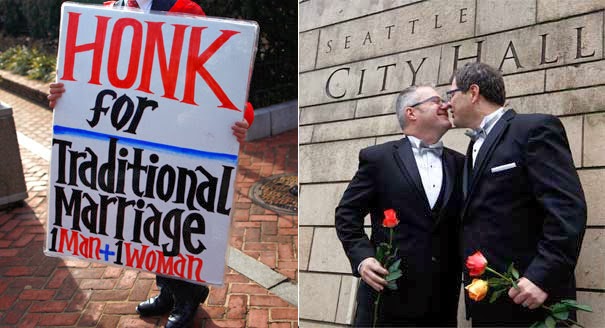Children
and grandkids save the holidays.
Without
them, my Christmas 2013 would have gone down as one of the most
dismal, personally, in my six decades on this planet.
Approaching
92, my father is frail and just plain tired; his telephone
conversations with me from an assisted care center in Spokane,
Washington, have degenerated over the past year.
 Where
once he showed interest in our lives in Utah, and told me corny
jokes, now he dwells in the negative.
Where
once he showed interest in our lives in Utah, and told me corny
jokes, now he dwells in the negative.
I
don't mean it as a criticism. I understand, and in his shoes, would
likely share the sentiment.
But
when you are trying everything you can think of to provide care and
security from 800 miles away, the dark conversations can wear one
down.
For
me, the doses of old age depression come twice a week: that's how
often I call, usually once early in the week and again on the
weekend.
I've
grown to dread these calls. Sometimes, it takes me several hours to
work up to the 15-20 minutes of complaints, confusion, anger I hear.
By this Christmas, I'm afraid, the weight of being upbeat and
encouraging had morphed from being a loving gift to an emotionally
draining act fueled by guilt and duty.
Again,
I don't for a second forget it is worse for my father and mother.
He is still alert, albeit depressed (I have asked the nursing staff
to explore antidepressants for him); my 86-year-old mother, with her rapidly
worsening Alzheimer's disease, is forgetting everything and everyone
-- except frustrations over her confusion and the paranoia of
dementia.
My
heart breaks for them, and the tears do come.
But
it is not just my parents. There has always been, overshadowing our
lives as a family, my sister. Cerebral Palsy and brain damage in the
womb left her the eternally crippled 5 year old. . . three years
older than me, yet always the little sister.
The
wild mood swings, from giddy happiness to rage in the blink of an
eye, finally made it impossible for my parents to care for her. When
I was 11, she entered institutional residency, and now lives in a
group home.
I
have always called the folks and her for the holidays though. Merry
Christmas? My father, understandably, wasn't feeling it this year.
Mom, who can no longer communicate in anything but gibberish, would
not even take the phone. I admit, part of me was relieved.
When
I called my sister, the irony hit me: For the first time I could
remember, she not only could communicate better than my mother, but
seemed the only one in our nuclear family to be happy.
So,
there is the overly long prelude to my opening statement.
Suffice
it to say, I was feeling especially down, worn out, spiritually
depleted when my wife, Barbara, and I went over for a Christmas
dinner at my son Rob's house. Our daughter-in-law, Rachel, had
prepared a vegetarian feast. Warm hugs, conversation, and playing
with their two dogs was a welcome respite, along with a group phone
call from our grandson, Josh.
Then,
we Skyped with our daughter, Brenda, and son-in-law Idal,
granddaughter Lela and new grandson Gabriel. Seeing and hearing the
joy of the children, Lela, at 6, opening our presents; Gabriel taking
a bottle from his parents, cooing and smiling -- and crying a bit,
too -- provided perspective, and not a little joy.
Belatedly,
it reminded me of my own childhood Christmases. More than a few of
them were magical, I now recall.
I remembered the smiles, when they
were witty and happy and healthy, of my parents; my sister's always
childlike laughter with a new doll or stuffed animal; my own gifts
from the folks, with the realization that they sacrificed much to
make the moments happen . . . that they loved me, and that we were --
however unique -- a family.
For
me, the best part as a child would be Christmas Eves. I would sneak
out of my bedroom after the folks and sis were asleep, curl up on the
couch and just watch the lights blink and shine on the tinsel of the
Christmas tree.
The
pine scent filled the house, and the essence of peace, love and
safety would eventually send me, yawning, back beneath the covers.
Thanks,
kids, and grandkids, for reminding me.
 I don't know. But I'll bet that some day, when we meet the denizens of some of these new worlds, we are going to feel pretty silly (i.e. ashamed) about how we've treated our planet, and each other.
I don't know. But I'll bet that some day, when we meet the denizens of some of these new worlds, we are going to feel pretty silly (i.e. ashamed) about how we've treated our planet, and each other.







